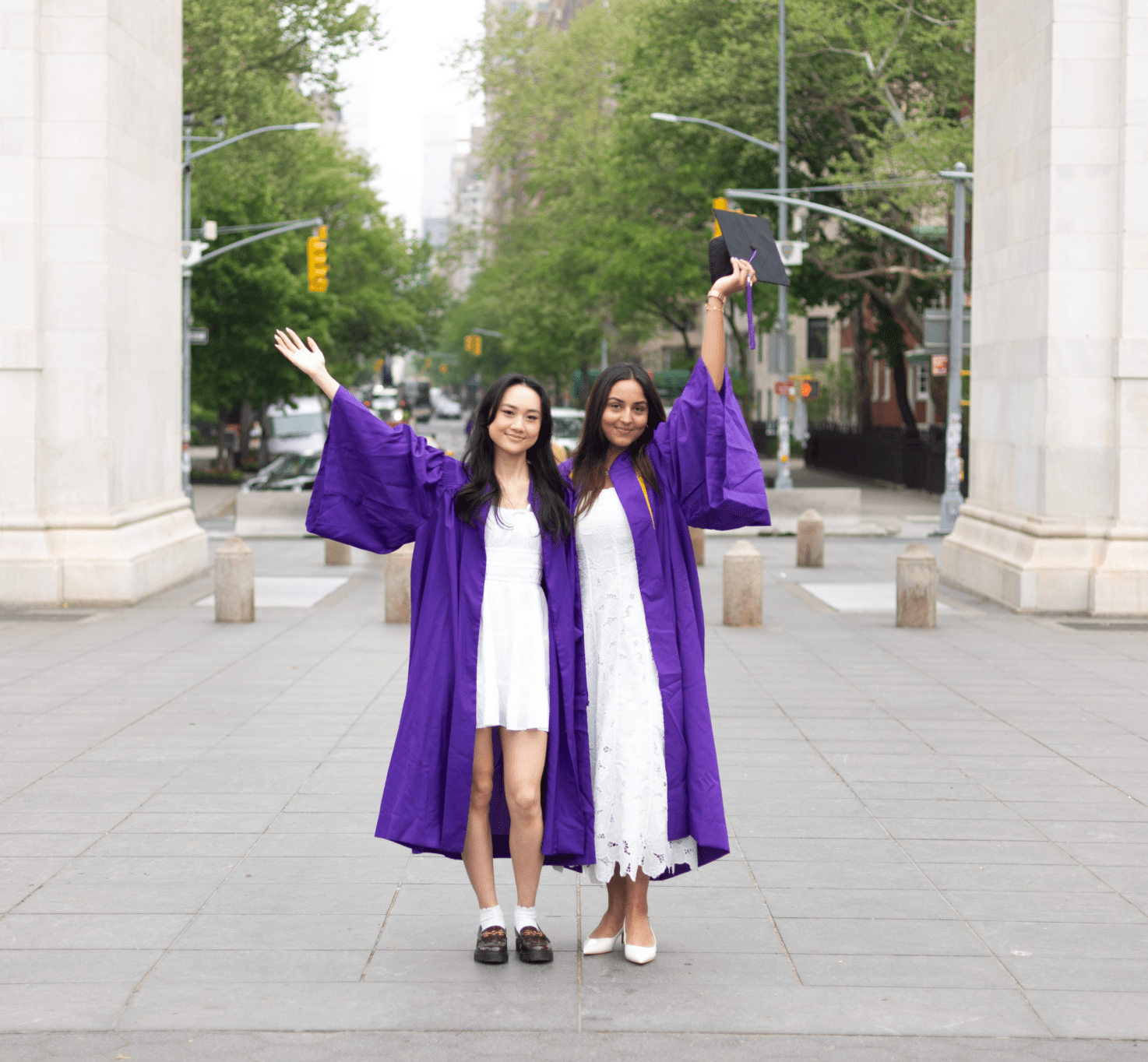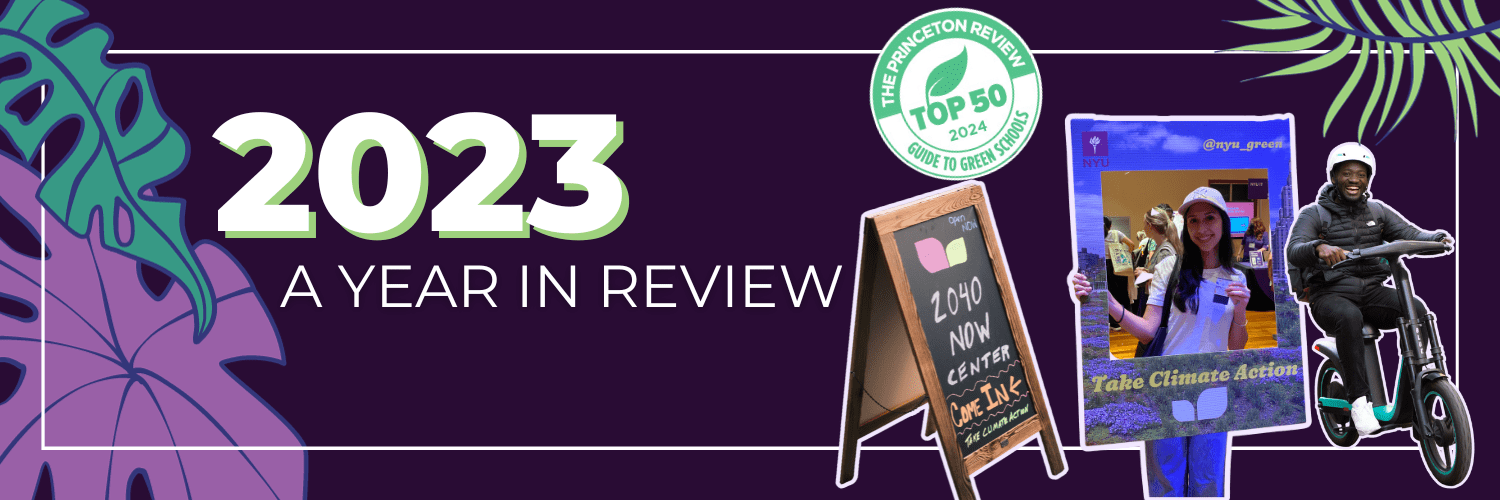
2023 was a big year for NYU as it surpassed expectations and reached new sustainability heights!
From a week-long celebration to combat climate anxiety to moving up in sustainability rankings, students, faculty, staff, and administrators from across the university came together to advance NYU’s sustainability initiatives and programs. Let’s take a look at some of our accomplishments this year!
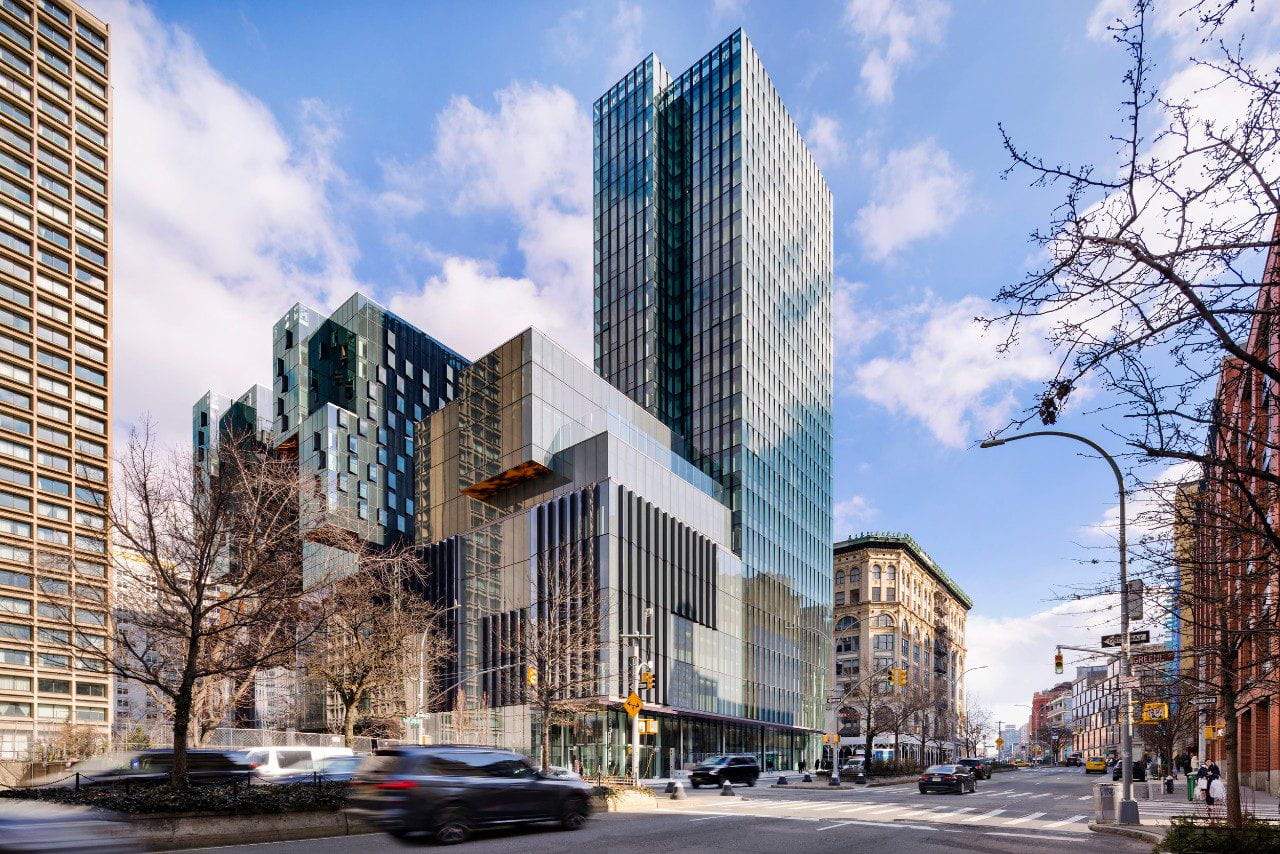
We started the year with the opening of the new John A. Paulson Center. This LEED Gold-certified building with 58 classrooms, academic and athletic facilities, theaters, common rooms, and faculty and student housing, was engineered with sustainability in mind.
In February, President Andrew Hamilton, Provost Georgine Dopico, and Executive Vice President Martin Dorph endorsed NYU’s Commitment to Sustainability. The commitment was developed by the NYU Sustainability Advisory Group and details how NYU strives to conserve natural resources, encourage sustainability practices, and more.

2040 Now was a week of creating climate awareness and taking action! We held several big events and competitions throughout the week to inspire students to take climate action and advocate for change.
- We launched the first-ever 2040 Now Climate Short Film Competition and received submissionsfrom all over the globe.
- The Environmental Racial and Justice Network (ERJN) held its first in-person Spring Summit, with multiple ERJN events throughout the week.
- The NYU community was zipping around campus during our Micromobility Festival where they got to try out electric scooters and e-bikes and enjoyed helmet giveaways and discounted bikes.
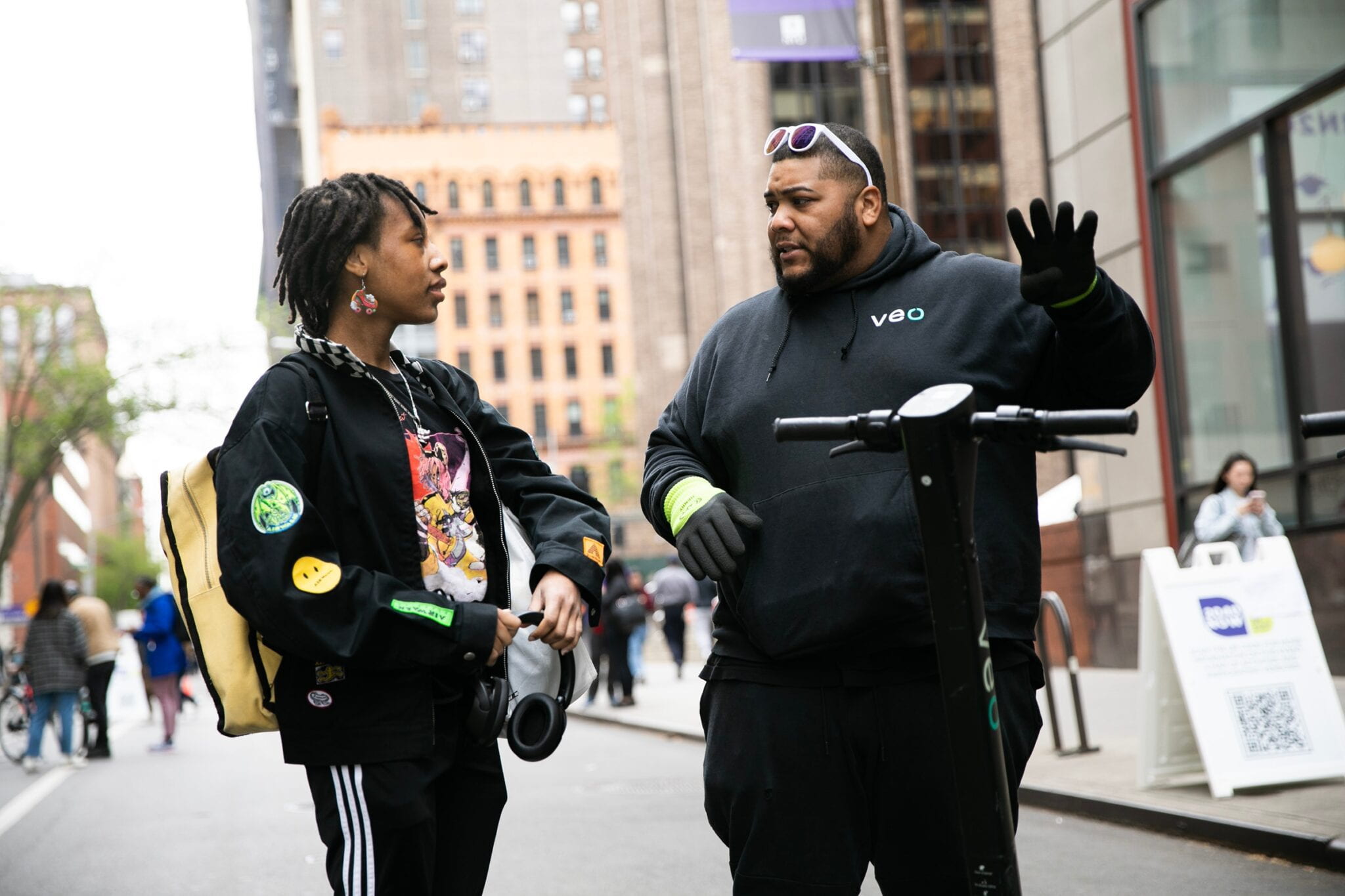
- Outfits inspired by climate activism, upcycling, biodiversity, and more walked down the runway during our Re-Fashion Show, hosted by none other than Plant Kween.
- The 2040 Now Center, the hub of all activity, allowed students to connect with their elected officials through postcard writing and advocacy. It also featured revolving speakers, activities, and tabling events.
As the spring semester wrapped up, we celebrated reaching 10,000 students through class presentations, where they learned about NYU’s sustainability initiatives, programs, and opportunities to get involved. It was a great opportunity to connect with students and faculty members!
In June, NYU was ranked by the Times Higher Education for Sustainable Development Goals (SDGs). In the U.S. we ranked #3 for Climate Action, #4 for Responsible Consumption and Production, and #5 for Affordable and Clean Energy! We also added a ‘sustainability’ tag in Albert to make it easier for students to find sustainability-related courses.
During the summer, we helped 12 students explore sustainability fields with our 3rd annual round of Sustainability Internship Grants. With our largest application pool yet, the accepted students worked at organizations like the United Nations Environmental Program, The Staten Island Zoo, Circle of Blue, and more.
 In September, NYU Abu Dhabi launched its Climate Action Plan. The plan enables the University to measure its greenhouse gas emissions and set clear, measurable targets for reduction. NYUAD’s carbon neutrality goal by 2050 is roughly equivalent to planting almost 20,000 acres of mangroves, three times the acreage of Saadiyat island in Abu Dhabi.
In September, NYU Abu Dhabi launched its Climate Action Plan. The plan enables the University to measure its greenhouse gas emissions and set clear, measurable targets for reduction. NYUAD’s carbon neutrality goal by 2050 is roughly equivalent to planting almost 20,000 acres of mangroves, three times the acreage of Saadiyat island in Abu Dhabi.
We celebrated Biketober with bike riding lessons outside of Tandon, where NYU community members were able to learn the ins and outs of riding a bike and bike safety. We also highlighted Campus Safety’s Bike Response Unit, which is back on campus and demonstrates how bikes can revolutionize and aid public safety.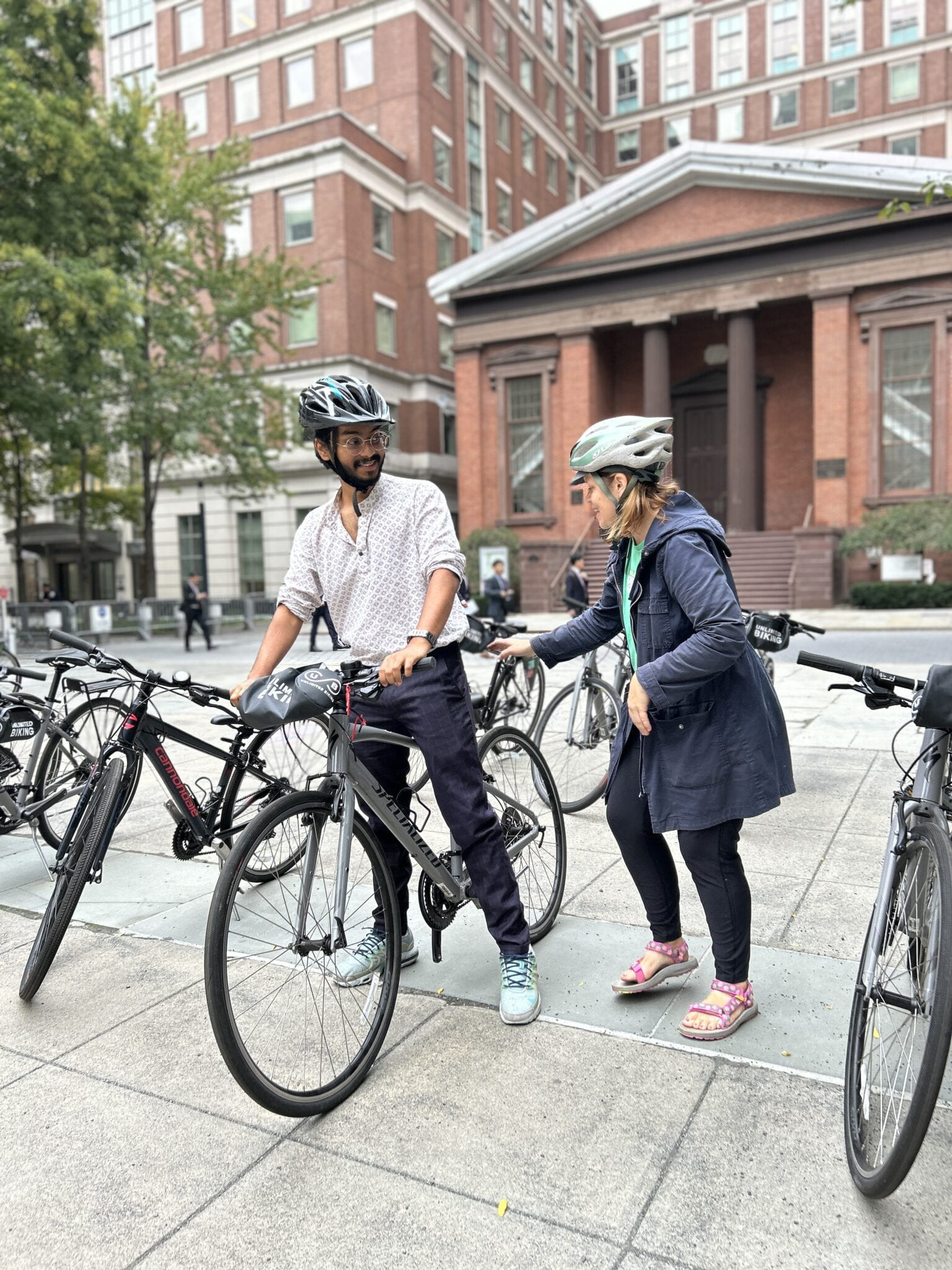
More recently, NYU climbed Princeton Review’s Greenest Colleges List to the #3 spot! Since appearing on the rankings in 2021, we’ve installed solar panels on the roof of Bobst Library, LEED-certified 5 more buildings (bringing the total to 17), and are currently conducting a passive house retrofit of Rubin Hall.
We ended the year with some great news. NYU is ranked #8 in the USA for the 2024 QS Sustainability Rankings, up from #17 in 2023! The QS Sustainability Rankings measures an institution’s ability to tackle the world’s greatest ESG challenges and features nearly 1,400 universities worldwide.
We thank the many members of our community who have helped advance sustainability efforts at NYU. All our 2023 accomplishments and favorite memories are possible only through collaborative efforts! We look forward to creating an even greener NYU in 2024 and a greener world as well.


 Greetings, fellow urban dwellers! It’s your favorite city-dwelling pigeon here, flapping in with some exciting news about New York City’s recent trash bin revolution. Hold onto your feathers because the Big Apple is taking a significant step toward a cleaner, greener urban jungle.
Greetings, fellow urban dwellers! It’s your favorite city-dwelling pigeon here, flapping in with some exciting news about New York City’s recent trash bin revolution. Hold onto your feathers because the Big Apple is taking a significant step toward a cleaner, greener urban jungle.

